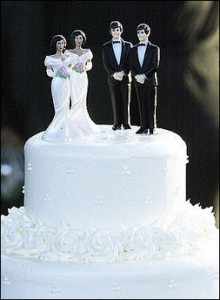Nizam had a point
Posted: April 5th, 2011 | Author: lise | Filed under: Column | Tags: Lisa Allen-Agostini, Nizam Mohammed, oppression, Parliament, Police Service, Race, racism, society, Trinidad & Tobago, Trinidad and Tobago | 11 Comments »The past couple of weeks have seen the pillorying of Nizam Mohammed, erstwhile chair of the Trinidad and Tobago Police Service Commission, culminating in the revocation of his appointment by our nation’s President George Maxwell Richards. Mr Mohammed was effectively fired for saying there were too many black people in the high echelons of the Police Service; he made the statement before a parliamentary Joint Select Committee on March 25, 2011 (this Trinidad Express editorial nicely sums up the whole case and its upshot).
The outcry following Mohammed’s statement about the imbalance was loud and ugly. He was called a racist, even though as he himself reminded the public he had been on the side of Black Power insurgents and long supported racial equality. Now the hue and cry has drowned out his protestations of unbiasedness. There are many factors at play–Mohammed made an ill-advised move earlier in his appointment in a confrontation with two police officers and lost a lot of credibility thereafter, and there was subsequently a national petition to have him removed from office–but surely the bigger picture is that he is right about the imbalance in the Police Service and that it ought to be addressed.
“The relationship between group composition and performance in general is clearly complicated, but from a strictly decision-making perspective, both sides of the debate regarding diversity effects are compatible with the hypothesis that groups often benefit from racial heterogeneity. The extent to which racial diversity facilitates information exchange and problem solving certainly indicates advantages for heterogeneous groups, especially for complex decisions. But even interpersonal conflict— often mentioned as the principal negative result of diversity—may be useful when a group’s primary goal is not boosting morale but rather good and thorough decision making.
[…]
Although equal access and the attempt to remedy historical injustices are important, and many would say noble considerations, the present findings provide evidence for another, often overlooked justification for promoting diversity: In many circumstances, racially diverse groups may be more thorough and competent than homogeneous ones.”
—”On Racial Diversity and Group Decision Making: Identifying Multiple Effects of Racial Composition on Jury Deliberations”
Samuel R Sommers, Tufts University, 2005, Journal of Sociology and Psychology. Source: http://ase.tufts.edu/psychology/documents/pubssommersonracialdiversity.pdf
Anybody who has ever had to manage a group of any size would tell you a diverse group brings different things to the table than a homogenous group.
Members of a homogenous group, such as the upper ranks of the Police Service largely is, think similarly on problems in many cases. Shared ethnicity in Trinidad and Tobago means that, class notwithstanding, the roots and leaves will be similar among the officers. One cannot effectively police a multi-ethnic, multi-racial, multi-religious society with only black police when more than half the society is not black. (Although, as one Facebook denizen recently implied, voicing an opinion shared by many, if you got rid of all the black people in Trinidad and Tobago crime would vanish, so, by that logic, if all the criminals are black then maybe all the police should be black, too.)
Whether or not we would admit it, racialism is strong and vibrant in our country. Pretending that “all ah we is one famalayyyy”, in the immortal words of Lord Nelson, will not make the problem go away. We all know the stereotypes:- White people are rich and snobbish; Syrian and Lebanese people are corrupt and incestuous; Indians are stingy and racist; black people are lazy and criminals; Chinese are cheap and have small penises/sideways vaginas. All ah we might be one famalayyyy but I wouldn’t want to be there when the gloves come off after that reunion dinner.
Policing is not merely solving crime. It is preventing criminal activity and relating to a community. How can the police do that when they, at the very least, can’t well understand more than half the society? When they fear, despise or resent the “other”?
Making the Police Service more racially balanced, at all levels, is not the job of the Parliament, it is true. But whoever has responsibility for it now is not doing his job. Perhaps we ought to mandate quotas to ensure more equitable representation of all races in the public service–and put measures in place to protect civil servants from the racial purging that takes place every time a different government comes into power.
